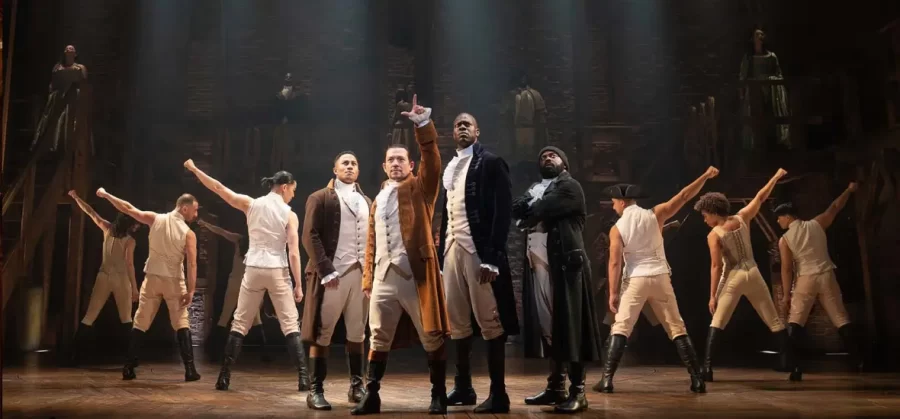Hamilton’s Impact on My Life
June 21, 2023
When I weakly exhale my final breath, will I be satisfied with my life and achievements? Did I lead a miserable life of regret? Did I carelessly waste my limited time? Will I leave an everlasting mark on the world? These questions swiftly infiltrated my thoughts when I was introduced to a musical that would unexpectedly change my life. “Hamilton” follows the life of Alexander Hamilton from his childhood as an inquisitive orphan in the Caribbean, through his triumphant career as a Founding Father, and ultimately to his tragic death by his friend and rival Aaron Burr. My cousins relentlessly effused their admiration for it, raving about the actors and actresses that showcased their beautiful voices. With only a bit of persuasion, I was convinced to listen to it. Although I have always had an affinity for music, I was enthralled by the tracklist, listening nonstop. Concealed in its upbeat melodies, ingenious lyricism, clean-cut rapping, and captivating vocals were powerful messages like the importance of diligence, advocating for change, and legacy.
An important message is conceived through the growing tension between Hamilton and Burr due to their juxtaposing approaches of seizing opportunity versus upholding extreme caution. They eventually teach each other an essential lesson in the second half of the musical, as shown in Hamilton’s newfound introspection and Burr’s eventual brazen ambition. These epiphanic changes exhibit the importance of a balance of persistence and reflection. An abundance of either virtue prevents success, as seen in the demise of both Hamilton and Burr. I lived solely like Burr for four years, hesitating to audition for the school musical despite my deep love for music. However, when singing along to the soundtrack alone in my room, accompanied only by my stuffed animals and the ethereal voices of the gifted actors, I realized I was neglecting Hamilton’s superordinate principle to take action with invincible fervor. My reluctance and lack of confidence in my ability to perform led me to actively “throw away my shot.” After concealing my insecurity as Burr would and vigorously working to improve my singing, effectively combining both viewpoints, I auditioned for the spring musical. I was able to accomplish something I had merely dreamt of for a long time. Without “Hamilton,” I would not have taken the chance, leaving myself pondering what would have transpired if only I had tried. From that moment on, I refused to continue living with cowardly hesitance. This musical surged my passion for theater and inspired me to undertake a project I would only fantasize about doing before.
Finally, one of the most prominent themes of the musical is legacy, as it is emphasized that you do not have control over “who lives, who dies, who tells your story.” Each character, although flawed, aims to establish a legacy amidst the inevitable cadence of time. In particular, Hamilton is gallantly willing to die during the war as long as it is for a cause meaningful to him. This sense of legacy encourages him to pridefully fight for what he believes in. Additionally, Hamilton eventually accepts and makes peace with his finite time, acknowledging that a person’s success is based on what was left behind for the world to relish. Like the protagonist, I am eager to write my own story and advocate for what is right. The ticking clock of mortality drives me to create a life that leaves a positive influence on the world, one that will outlive me. Leaving behind a legacy would, in a way, provide me immortality, as my contributions to society will be remembered. The only way to compel people to continue to share my story is to lead a life dedicated to diligence, determination, and purpose. As a result, my eternal presence will be seen through my children’s eyes once mine shut for the last time.
Hamilton’s successful yet short story was revolutionary for the nation’s foundation and my life. This reflective narrative about legacy, dreams, passion, and courage has inspired me to gain assertive control of my actions. I must industriously pursue my ideals for my comfort and the potential impact on others. My newfound clarity on what I want my legacy to be gives me a sense of meaning and purpose. I aim to have the words etched onto my gravestone echo the influence I have engraved into the hearts and lives of others. So, as I belt every word to “Hamilton” in the shower each day, my insecurity and hesitancy running down the drain alongside the soap suds, I find great motivation in knowing that history has its eyes on me.
